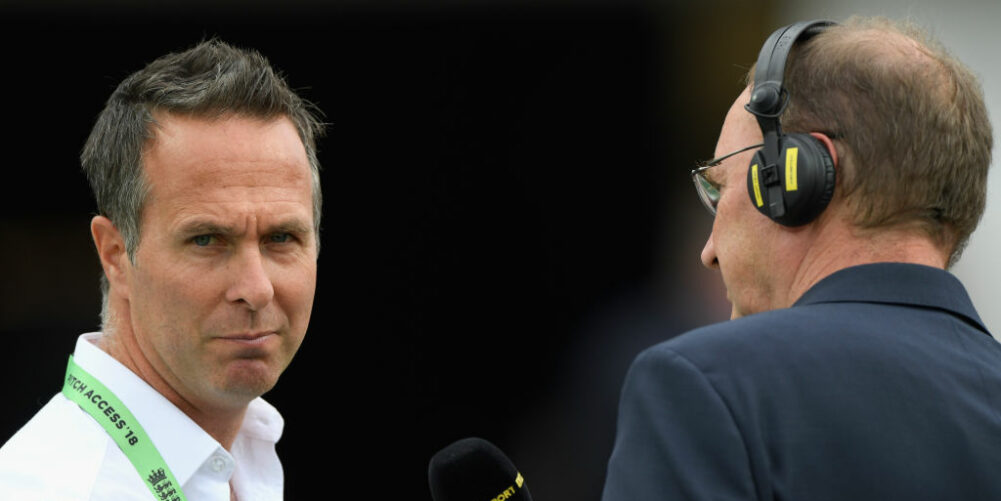By Isabelle Westbury
Tell me about a time when you changed your mind?… It is a common question asked of candidates in job interviews. The aim is to determine the skills or characteristics of the interviewee, and how they approach different problems. It is a question I answered recently by describing how I had changed my view of the importance of everyday, seemingly innocuous, language in sport.
I, personally, don’t care whether it is a batsman or batter; third man or third-something-else; or even man-of-the-match or player-of-the-match. It has never affected me, nor my perspective of where I might stand nor what I might be able to achieve in cricket. As a result I had, until recently, given it little thought. Call it what you want, see if I cared.
Only that was until recently. I have changed my mind. It was put to me, quite simply, that just because something does not affect me, it does not mean that it does not necessarily have an impact, implicitly or otherwise, on someone else. A little girl, perhaps, turning on the television, or the radio, for the first time and hearing and seeing men only. Male sport, after all, dominates our media coverage. Batsmen, men-of-the-match, chairmen of the governing bodies, this is what they will see. They might therefore assume, with nothing to suggest otherwise, that this was a game for men only.
It might be that most girls, like me, are not deterred by this, determined instead that if there really are no women, that they will be the first, or if there are, to find and join them. But the question then is, why? Why should a girl, or woman, have to overcome barriers to be involved in a sport which is actively trying to engage as many people as possible. Why not, instead, ensure that the game is as welcoming, and inclusive, to anyone and everyone. And if just one girl is deterred from playing the sport because of the language used and the inference this makes, then that is one girl too many.
When the Daily Mail ran an article recently, drawing us to the fact that the ‘Man of the Match’ award had been replaced in international cricket with a ‘Player of the Match’ award, to “make them more gender-neutral”, it was a deliberate, and clever, provocation. It is also, incidentally, very old news – both the ICC and the MCC, as the article itself points out, updated the laws and rules of the game to use this terminology last year. Anonymously written, it fell to others therefore to take the bait. Many high profile (male) social media users duly did, clamouring to express their outrage.
“What is the problem?” they cried. “Is the word ‘man’ now deemed offensive?” it was asked. “The world is officially going bloody nuts,” declared former England captain Michael Vaughan. Nigel Farage (I withhold judgement) ran to Vaughan’s support. Note that most of this outrage comes from men, mostly white, who have worked in an environment in which their sex, background and ethnicity are the majority. Neither Vaughan, nor Farage, nor any other of those now outraged by this change, will have ever felt that their chosen profession was not for them. It follows, therefore, that there is no need, in their eyes, for the terminology to change.
What they have failed to do however, is to try and see the perspective of others. To change from “man” to “player” or “batsman’ to “batter” is surely no detriment to any of us. The only affect might be a minor dent to a nostalgic longing for a past in which mainly white, mainly men once thrived. But to others, the future of the sport, of our society, it could be the difference of involvement, inclusion and acceptance, or not.
Empathy. Understanding. Other people’s perspectives. We live in a political and socio-economic climate which is increasingly becoming an echo chamber, only listening and conversing with those who hold similar views. Sport holds a unique power in its ability to transcend those divides and unite many different backgrounds and perspectives. Language plays a huge part in that.
So we now have ‘player of the match’ in cricket rather than ‘man of the match’ even when 22 Men are playing !!!! The world is officially going bloody nuts ….. #OnOn
— Michael Vaughan (@MichaelVaughan) August 24, 2018
Greg James, the Radio 1 DJ, is refreshingly enlightened on the matter. “I think the point is that it’s not taking anything away from men,” replied James to Vaughan’s tweet. “And in the process makes women feel more included in a sport which historically has been awful for that. It’s just a small positive move.”
It is not simply pure speculation that I write this. Last month an 11-year-old girl, Olivia, wrote an articulate letter to the Australian cricket manufacturer Kookaburra. She expressed her “obsession” with cricket before explaining that she was sad that she had only seen ‘boys’ sizes of their equipment in shops. She also pointed out that of the 20 cricket videos on Kookaburra’s website only one featured female players.
To their credit, Kookaburra responded that they had already updated their sizing terminology and had resolved to include more women in their videos. The Kookaburra team, while I’m sure are all very pleasant people, are not taking such actions to be kind, or merely for a PR boost, but because it is good business; they want more people playing the game so more people will buy their equipment. Ensuring 100 per cent, rather than 50 per cent, of the population are fully included seems like a sensible plan.
As the broadcaster Alison Mitchell adroitly explained, commonality of language across the game, where possible, reinforces and strengthens the impression of cricket being a sport played by all. If the MCC, the ICC and profit-making entities like Kookaburra can see this, than I fail to understand why others can’t too.
Vaughan, and others, are no doubt sincere in their belief that there is nothing wrong with this expression of outrage. Sarah Styles, Head of Female Engagement at Cricket Australia, has offered to take Michael Vaughan out to lunch when he begins his media engagements in Australia over the winter, to explain why language matters. I suggest that Vaughan accepts the offer because then, maybe, he will have the humility to answer that question – a time when he changed his mind – both confidently and honestly.















